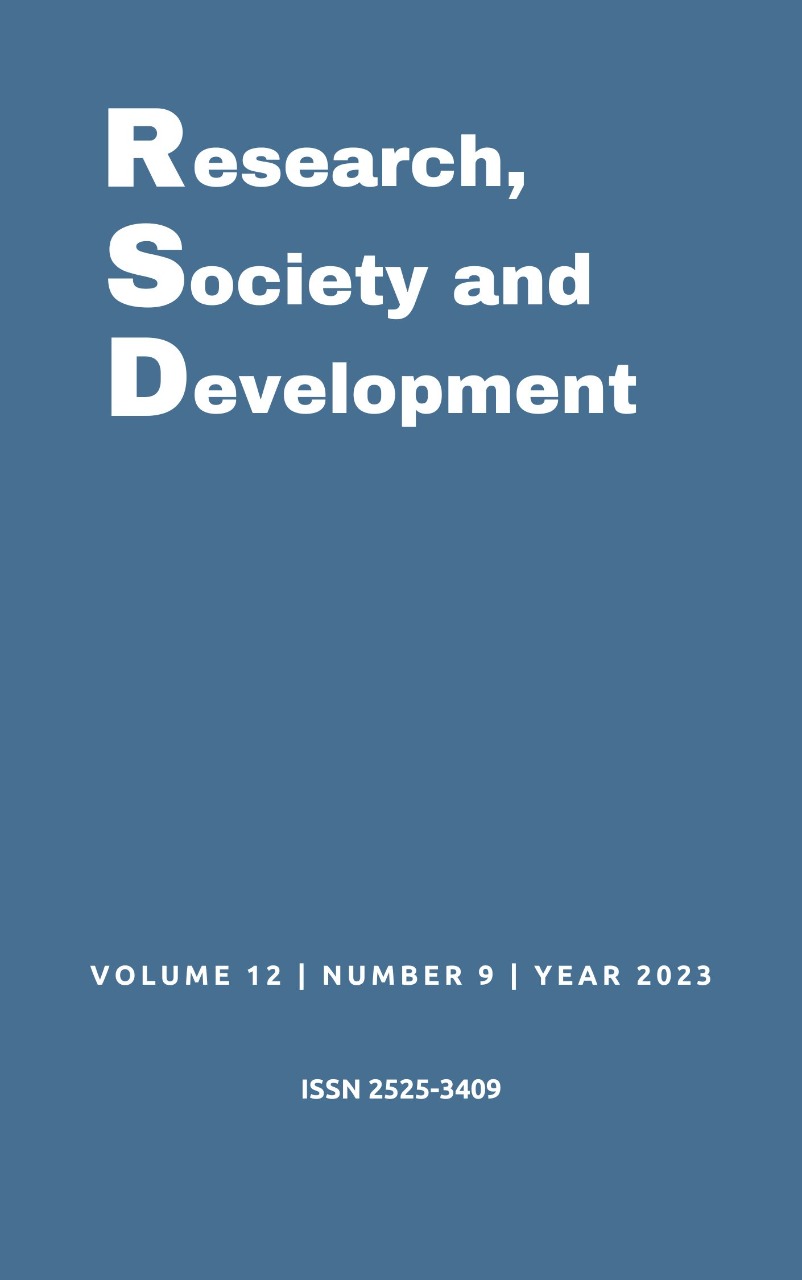Técnica de Shadowing: Explorando las perspectivas de los profesores de Inglés como lengua extranjera en formación para mejorar las habilidades de expresión oral
DOI:
https://doi.org/10.33448/rsd-v12i9.43105Palabras clave:
Técnica Shadowing, Perspectivas, Futuros docentes, Inglés como lengua extranjera, Ecuador.Resumen
This qualitative study aimed to identify the students' perspectives on the usage of the shadowing technique used to improve their English-speaking skills during one semester. The participants are 16 Ecuadorian pre-service teachers who are enrolled in the Pedagogy of National and Foreign Languages career at Quevedo State Technical University. The data were collected through a questionnaire and analyzed in the light of the grounded theory. The results of the study show that shadowing provides them with a unique opportunity to develop their fluency, pronunciation, and intonation in the target language. Also, the participants considered shadowing to allow for the internalization of linguistic patterns and grammatical structures in a more natural and automatic way. Consequently, this research underscores the significance of discerning students' viewpoints on the instructional strategies employed in the classroom to tailor them appropriately to each specific context. Additional studies remain essential within the Ecuadorian framework to delve into how students' views on educators' teaching techniques impact them, particularly in terms of their emotional responses.
Referencias
Cherry C (1953) Some experiments on the recognition of speech, with one and with two ears. Journal of the Acoustical Society of America 25(5): 975–79. https://doi.org/10.1121/1.1907229
Cook-Sather, A. (2003). Listening to students about learning differences. TEACHING Exceptional Children, 35(4), 22 26. https://doi.org/10.1177/004005990303500404
Fernández, A., & Fonseca, A., M. (2022). EFL learners’ speaking proficiency and its connection to emotional understanding, willingness to communicate and musical experience. Language Teaching Research, 26(1), 124–140. https://doi.org/10.1177/1362168819891868
Fisette, J. (2010). Getting to know your students: The importance of learning students’ thoughts and feelings in physical education. Journal of Physical Education, Recreation & Dance, 81(7), 42-49, https://doi.org/10.1080/07303084.2010.10598508
Glaser, B. (1998). Doing grounded theory: Issues and discussions. Sociology Press.
Glaser, B. (2005). The grounded theory perspective III: Theoretical coding. Sociology Press.
Holliday, A. (2005). Doing and writing qualitative research (2nd ed.). Sage Publications.
Juhana, J. (2012). Psychological factors that hinderstudents from speaking in English class: A casestudy in a senior high school in South Tangerang,Banten, Indonesia. Journal of Education andPractice, 3(12), 100-110, 2012. www.iiste.org/Journals/index.php/JEP/article/viewFile/2887/2913
Kaewkungwal, J., & Adams, P. (2019). Ethical consideration of the research proposal and the informed-consent process: An online survey of researchers and ethics committee members in Thailand, Accountability in Research, 26(3), 176-197. https://doi.org/10.1080/08989621.2019.1608190
Kehing, K. L., & Yunus, M. M. (2021). A systematic review on language learning strategies for speaking skills in a new learning environment. European Journal of Educational Research, 10(4), 2055-2065. https://doi.org/10.12973/eu-jer.10.4.2055
Mackey, A., & Gass, S.M. (2021). Second Language Research: Methodology and Design (3rd ed.). Routledge. https://doi.org/10.4324/9781003188414
Martinsen, R., Montgomery, C., & Willardson, V. (2017). The effectiveness of video‐ based shadowing and tracking pronunciation exercises for foreign language learners. Foreign Language Annals, 50(4), 661-680.
Rao, P. S. (2019). The importance of speaking skills in English classrooms. Alford Council of International English & Literature Journal, 2(2), 6-18. https://doi.org/10.4236/ce.2021.123037
Santos, J. C. d., & Ramírez-Ávila, M. S. (2023). Students’ perspectives on the 4/3/2 technique and self-assessment to improve English speaking fluency. Studies in English Language and Education, 10(1), 41-59. https://doi.org/10.24815/siele.v10i1.25700
Santos, J., & Barcelos, A. (2018). Não sei de onde vemessa timidez, talvez um medo de parecer ridículo: Um estudo sobre a timidez e a produção oral dealunos de inglês. Revista Horizontes de LinguisticaAplicada, 17(2), 15-38. https://doi.org/10.26512/rhla.v17i2.22627
Santos, J., Veiga de Souza, V., & Vélez-Ruiz, M. (2020). Evaluación de las emociones que impiden que estudiantes ecuatorianos hablen inglés en clase: Caso Provincia de Los Ríos. Maskana, 11(1), 5–14. https://doi.org/10.18537/mskn.11.01.01
Seitenova, S., Khassanova, I., Khabiyeva, D., Kazetova, A., Madenova, L., & Yerbolat, B. (2023). The effect of STEM practices on teaching speaking skills in language lessons. International Journal of Education in Mathematics, Science, and Technology (IJEMST), 11(2), 388-406. https://doi.org/10.46328/ijemst.3060
Thijssen, M. W., Rege, M., & Solheim, O. J. (2022). Teacher relationship skills and student learning. Economics of Education Review,89,102251. https://doi.org/10.1016/j.econedurev.2022.102251
Trigwell, K., Prosser, M., & Waterhouse, F. (1999). Relations between teachers approaches to teaching and students’ approaches to learning. Higher Education, 37, 57-70. https://doi.org/10.1023/A:1003548313194
Vega, R. M., Peláez, E., & Raj, B. (2021). Shadowing as peer experiential learning for faculty instructional development strategy: A case study on a computer science course. International Journal of Educational Research Open, 2. https://doi.org/10.1016/j.ijedro.2021.100091
Yavari, F., & Shafiee, S. (2019). Effects of Shadowing and Tracking on Intermediate EFL Learners’ Oral Fluency. International Journal of Instruction, 12(1), 869-884. https://doi.org/10.29333/iji.2019.12156a
Descargas
Publicado
Número
Sección
Licencia
Derechos de autor 2023 Gabriela Galeas Arboleda; María Angelica Rivadeneira Zambrano; Jardel Coutinho dos Santos

Esta obra está bajo una licencia internacional Creative Commons Atribución 4.0.
Los autores que publican en esta revista concuerdan con los siguientes términos:
1) Los autores mantienen los derechos de autor y conceden a la revista el derecho de primera publicación, con el trabajo simultáneamente licenciado bajo la Licencia Creative Commons Attribution que permite el compartir el trabajo con reconocimiento de la autoría y publicación inicial en esta revista.
2) Los autores tienen autorización para asumir contratos adicionales por separado, para distribución no exclusiva de la versión del trabajo publicada en esta revista (por ejemplo, publicar en repositorio institucional o como capítulo de libro), con reconocimiento de autoría y publicación inicial en esta revista.
3) Los autores tienen permiso y son estimulados a publicar y distribuir su trabajo en línea (por ejemplo, en repositorios institucionales o en su página personal) a cualquier punto antes o durante el proceso editorial, ya que esto puede generar cambios productivos, así como aumentar el impacto y la cita del trabajo publicado.


